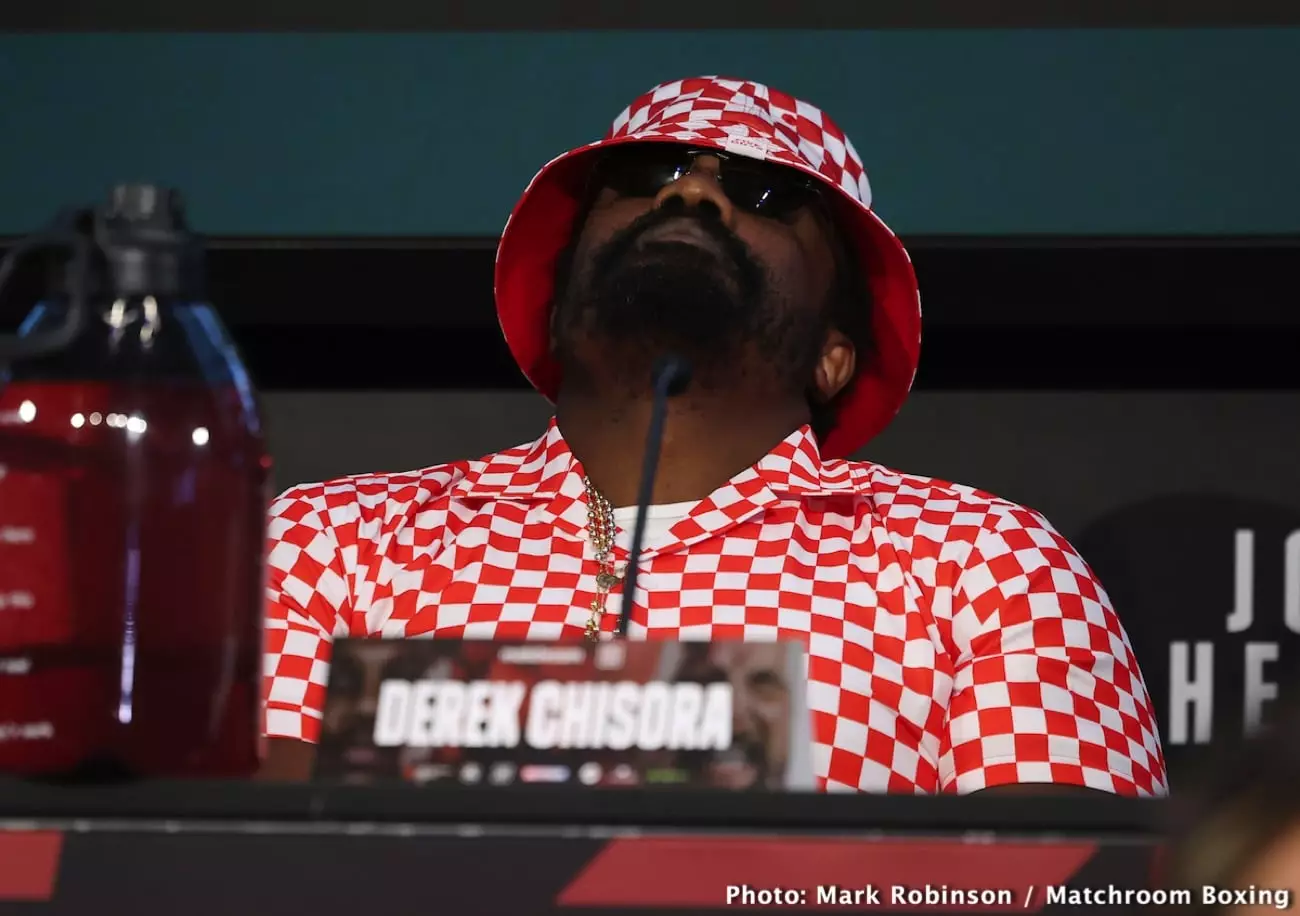Dillian Whyte, a name once synonymous with heavyweight boxing prowess, seems to be standing on the precipice of retirement after a lackluster performance against Ebenezer Tetteh. Observers noted a significant decline in Whyte’s vitality, with him appearing exhausted and vulnerable throughout the match. At age 36, his age may finally be catching up to him, marking a stark contrast to the athletic vigor that once propelled him through the ranks of heavyweight boxing. The bout concluded with Tetteh being pulled out after seven rounds, a decision that reflected both fighters’ limitations rather than any semblance of mastery over the sport.
Whyte’s apparent struggle against what many perceived to be an inferior opponent raises critical questions about his future in boxing. One can only conclude that reality may set in soon: the fighter who once seemed destined for greatness now grapples with a stark decline in ability and resilience. The moment encapsulates a larger narrative on how age and extensive combat experience can coalesce into a precarious state, leaving former champions to either rise from the ashes or fade into obscurity.
The Road Ahead: Will Whyte Stay Relevant?
Despite the glaring signs of decline, Whyte remains hopeful for the future, indicating a desire for high-profile matchups with boxing luminaries such as Anthony Joshua and Tyson Fury. However, one must seriously consider the viability of such encounters. Boxing pundits and fans alike share skepticism about Whyte’s chances against top-tier opponents, especially given his recent performance. The allure of major fights may hold less significance if his condition continues to deteriorate.
Moreover, there’s an emerging dialogue surrounding whom Whyte should face next. With potential matchups against fighters like Martin Bakole or the rising Johnny Fisher being floated, it becomes clear that Whyte may need to reconsider his ambitions. While these fights may serve to revive his career momentarily, they also pose considerable risk. Bakole, known for his formidable power, could spell disaster for the already struggling Whyte. Furthermore, matching him against the young and energetic Fisher would not only challenge Whyte’s capabilities but showcase the generational shift in boxing talent.
The Need for Realism: Embracing New Challenges
Amidst this turmoil, many believe Whyte should return to more realistic bouts. An intriguing possibility involves a third fight against Derek Chisora, both fighters being at a similar crossroads in their careers. This encounter would serve not only as a nostalgic rematch for fans but could also clarify each fighter’s implications for the future of the heavyweight scene. Alternatively, a match against a seasoned yet slower fighter like Joe Joyce presents another opportunity for Whyte to measure his waning skills against a fellow veteran.
In either case, one can’t ignore that as his career progresses, Whyte’s chances of securing a victory against well-matched opponents increasingly diminishes. With experience outweighing technique, and decline marking his performances, the time for Whyte to pivot into a new chapter is rapidly approaching. Ultimately, the boxing world needs to brace itself for the potential end of an era—a fading champion, struggling to find relevance in a sport that favors youth and resilience. The question remains: will Dillian Whyte embrace this transition with dignity, or will he stubbornly cling to fleeting aspirations?

